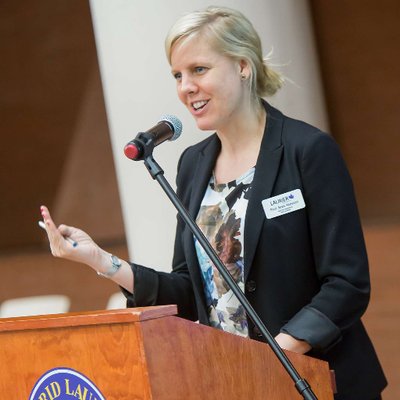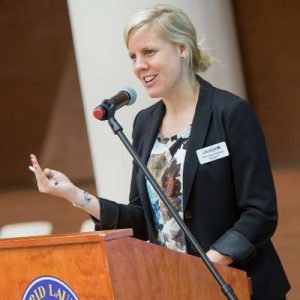Two Laurier professors to receive provincial funding for research


Two associate professors and researchers at Wilfrid Laurier University will be receiving provincial funding from Ontario’s Ministry of Economic Development, Job Creation and Trade.
Bree Akesson, Associate Professor in the faculty of social work and social justice & community engagement at Laurier’s Brantford campus, will receive $140,000 for her research into the experiences of war-affected families.
“I have worked in different contexts such as with Palestinian families in the West Bank or Syrian families in Lebanon. I am specifically interested in how mothers and fathers parent in these contexts of adversity,” said Akesson in an email statement.
Her project, “Families Under Fire: Practices, Rights, and Well-Being in Contexts of War, Displacement, and Resettlement” uses interactive storytelling website to share the stories and experiences of Syrian refugees living in Lebanon.
“In my most recent study with Syrian refugee families in Lebanon, I gathered detailed, rich and emotional stories of families’ lives in Syria, the journey from Syria to Lebanon, and their current lives in Lebanon. Families shared these stories with tears and laughter, and they often told me how relieved they were to share their stories,” said Akesson.
“Some families admitted that they had never shared these stories before, and they were glad to have shared. Others felt empowered to be asked to tell their stories, because they felt that their stories had been neglected both within and outside their communities.”
The funding Akesson received will be used to provide salaries for undergraduate and graduate level research assistants who will be trained to participate in a research project that looks at the experiences of recent refugee families in Ontario.
“My students are critical to my research. I have an amazing team of international and Canadian research assistants who have helped in so many aspects of the research. They also challenge me in surprising ways. For example, one of my RAs consistently asks how our research can actually change things for the populations we work with. I take her challenge seriously, and now I try to share my research in more creatives ways beyond mere academic journal articles.”
Akesson is also the recipient of the Ontario Early Researcher Award, something she is honored to have achieved.
“It was the third time that I applied for the award, which makes it even more special. I appreciate that the award really values the development of my research team, which is so critical to me being successful in this kind of research.”
Geoff Horsman, Associate Professor in the department of chemistry and biochemistry and leading researcher in his field, will receive $97,651 for his research into how bacteria can create different molecules.
Horsman’s research has both medical and chemical applications, both of which address pressing issues in their respective categories
“Medically, I think that understanding the chemistry that bacteria make can help us deal with things like antibiotics resistance by either making new antibiotics or understanding how bacteria evade our current antibiotics and how we can get around their defences,” said Horsman.
“In the environmental aspect of our research, we deal with developing sustainable processes for making things. So often commercial chemical manufacturers often do chemistry in things like organic solvents, they use high temperature and pressures, things that are not environmentally friends. Bacteria are really good at using enzymes, they natural catalysts, they’re just proteins, and they’re not environmentally toxic at all. They can perform the same reactions, even better in many cases, just in water and normal temperatures and pressures.”
The provincial funding Horsman receives will be used to purchase a piece of infrastructure called a mass spectrometer.
“This is a really important piece of instrumentation for measuring the mass of molecules, you can really get a lot of information about what’s being made from the bacteria using this instrument. We currently don’t have one on campus so we have to go elsewhere and spend lots of our money on getting this information elsewhere, so this will be very important to support all of our research projects.” Horsman said.

